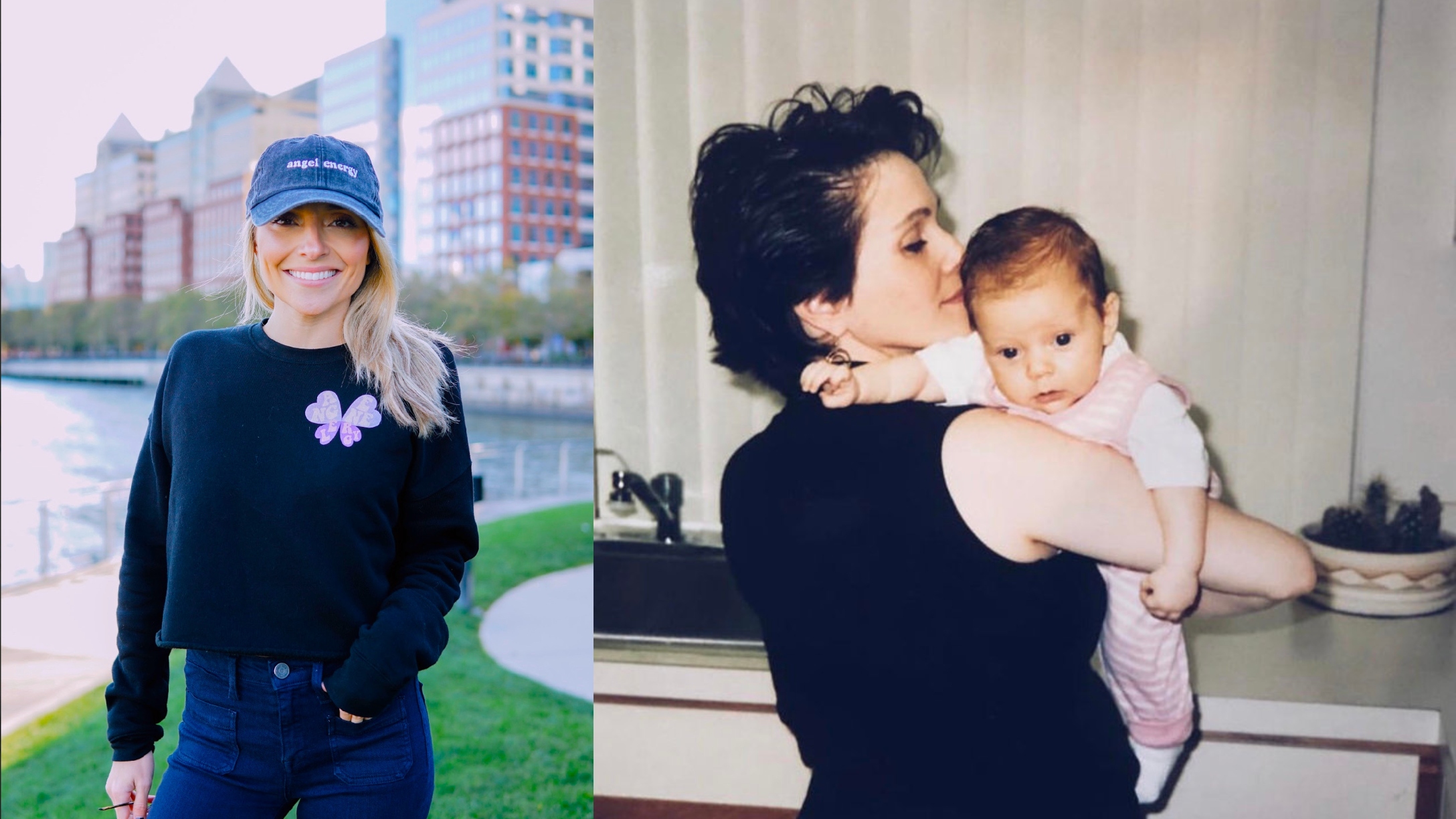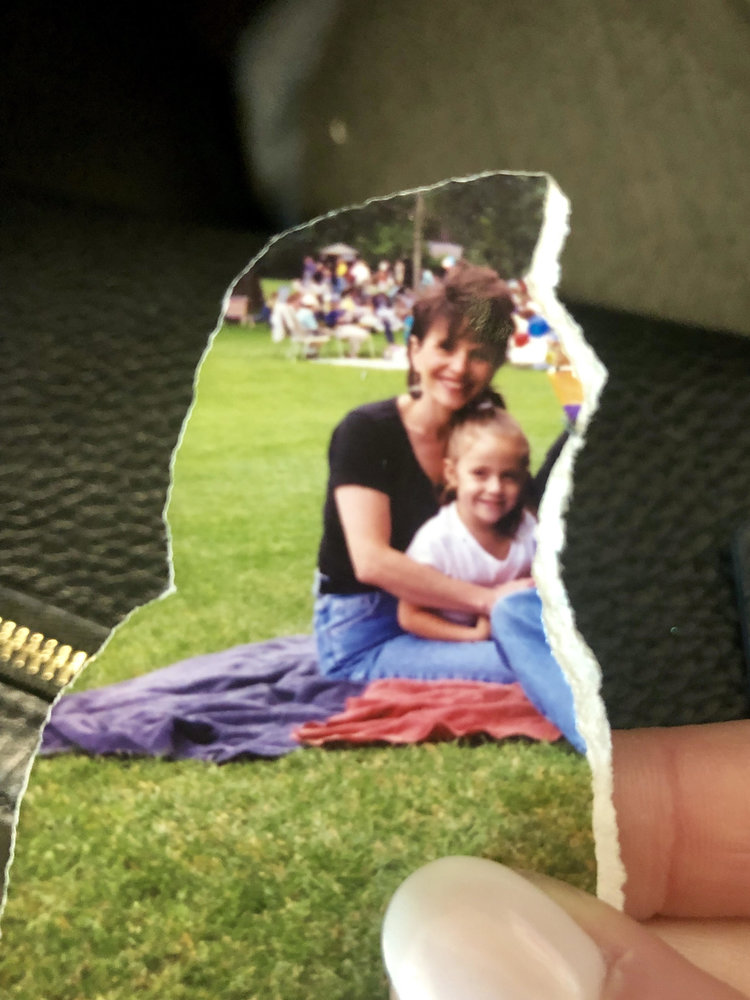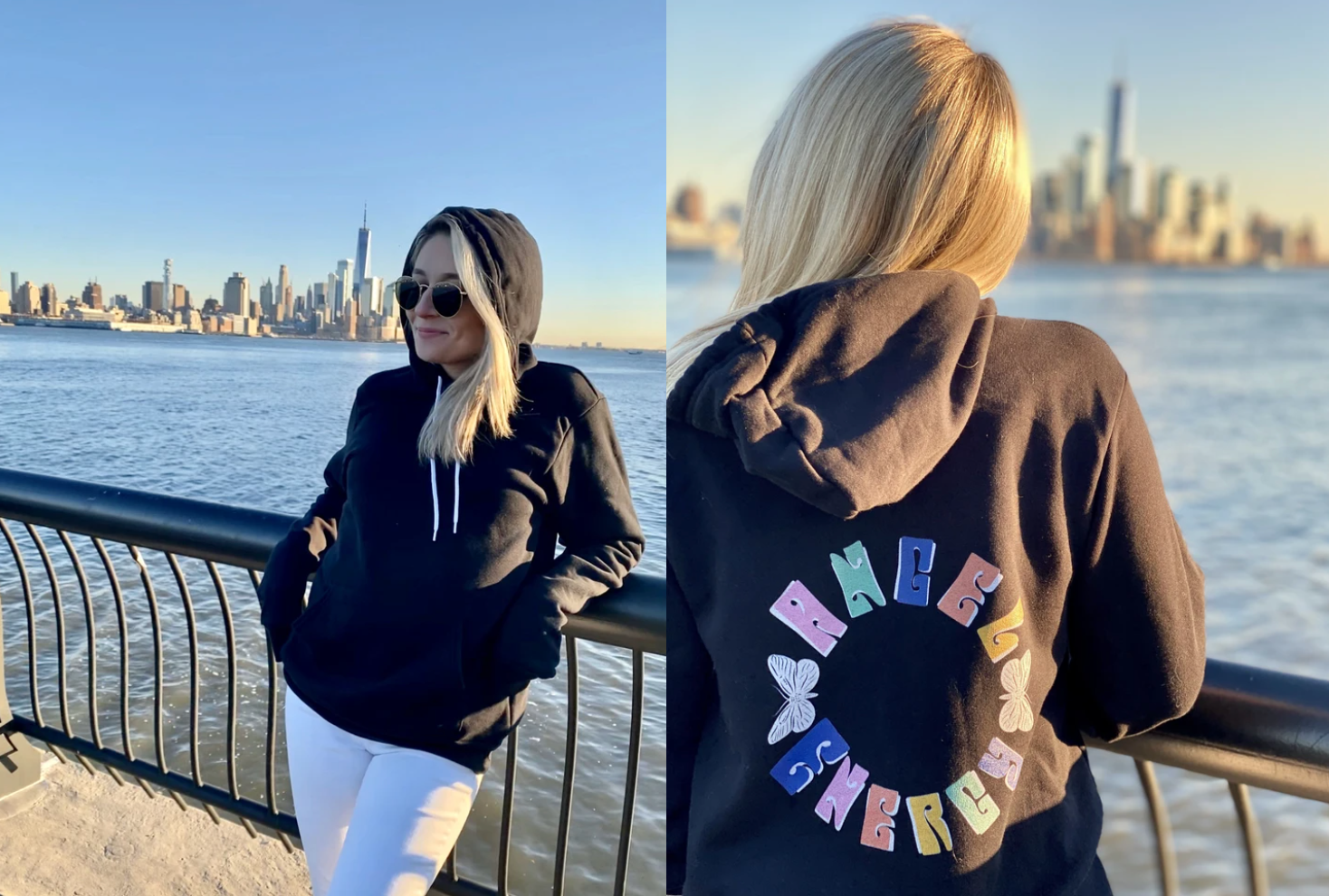
It's been more than two decades since Sarah Ripoli last saw her mother alive, but even now, when she closes her eyes, she can still see her beautiful smile. She remembers the way they'd laugh and giggle, and the scent of her mother's perfume against her skin. But most of all, she remembers the way her mother made her feel — happy, protected, loved.
Sarah's mother, Brenda Ripoli, was shot and killed inside her home on April 8, 1999, at just 40 years old. Newspapers would later call it a "crime of passion," and in the days and weeks that followed, the last moments of Brenda's life would be splashed across news headlines and detailed in sprawling magazine features for public consumption. All of them would recount her seemingly "picture-perfect" life and marriage in the affluent suburb of Medford, New Jersey, and describe her sudden death as shocking, appearing to come out of nowhere.
The arrest report, however, would spell things out more plainly, and call it what it was: first-degree murder, by way of domestic violence.
It didn't take long for police to identify who pulled the trigger.
Within hours, 47-year-old Frank Ripoli — Brenda's husband and Sarah's father — was taken into custody and charged with murder.
There was, after all, little doubt as to what had happened.
Earlier that day, Brenda had finally decided to leave her husband, after quietly enduring years of emotional and physical abuse. As she rushed through her home, filling garbage bags with her posessions, Sarah sat in the downstairs living room with her paternal grandfather, whom she lovingly referred to as "Pop-Pop."
At the time, Sarah was just one month shy of turning 7.
But even then, at so young an age, she knew that something was wrong.

As her mother rushed from room to room, the little girl sat on the couch, nervously biting her nails.
It's a detail Sarah can still remember clearly, because as she recently told Today, it prompted her mother to speak the last words she would ever say to her: "Sarah, get your hands out of your mouth."
Moments later, Brenda would climb the stairs, and utter two more words that would haunt Sarah for the rest of her life: "Frank, no!"
The statement was more of a scream, and it was followed by a loud gunshot.
Sarah was startled by the sound but confused about what it meant. To her 6-year-old self, it sounded like two bricks being smashed together. But why would that be?
Pop-Pop, meanwhile, was unaware of the chaos that was happening around him. In his 70s and hard of hearing, he continued dozing quietly on the couch beside his granddaughter.
What followed next was a confusing blur, as her childhood home was turned into a crime scene. But now, at 27 years old, Sarah can clearly see those moments for what they were: the end of life as she knew it, and the shattering of what was left of her innocence.
Frank Ripoli Jr. reportedly awoke his father by calling to him downstairs.
He summoned the old man upstairs, where the grandfather was reportedly stunned to see his daughter-in-law laying lifeless and bloody on the floor, dead of an apparent gunshot wound inflicted by his son.
Frank Sr. immediately sprinted downstairs and rushed Sarah outside
"Where's Mommy?" she remembers asking her grandpa. "I want to see her!"
"She's resting," he tried to assure her, but once the car pulled away from the home, he told her the heartbreaking truth: "Your mom's in heaven right now."
For Sarah, that horrible day still plays vividly in her mind.
"The memories of that day have haunted me for my whole lifetime, and probably always will," she tells CafeMom, adding that they'll "forever be imprinted" in her brain.
Still, Sarah admits that for years she managed to keep them at bay — her only shot at self-preservation.
"For a good portion of my late adolescence and early adulthood, I was able to suppress the flashbacks and am able to better control them now," she explains.
Compartmentalizing those memories — and the years of pain that they caused — is one way she can control her own story. Another, she's recently discovered, is by writing an entirely new one.
In July 2001, more than two years after Brenda's murder, Frank Ripoli Jr. was finally sentenced for her death.
To avoid a public trial, Frank accepted a plea deal from prosecutors and pleaded guilty to a lesser charge of aggravated manslaughter. He was eventually released from prison in 2016, after serving just 15 years of his 18-year sentence.
As for Sarah, she claims that she has no relationship with her father now — nor has she ever wanted to, after knowing what he's done. If she ever had any glimmer of empathy or compassion for him, that was erased more than a decade ago.
"When I was 15, he actually told me on a phone call that [my mom] 'deserved it,'" she tells CafeMom. "That was the last time I ever spoke to him. He has never apologized or taken any accountability for how his actions completely altered my life and the lives of so many forever."
After the murder, Sarah was raised by her maternal grandparents, who did their best to give her a happy life.
They also tried to shield her from the traumatic details of her early years, but as hard as she tried to suppress the memories, snippets from her childhood began creeping back as she grew older.
"There was a lot of abuse that was hidden from me as a child, but a few vivid memories remain engraved in my mind," Sarah says now. "I will never forget the time my mom fell asleep reading to me before bed. My dad barged into my room abruptly in the middle of the night and dragged her out of my bed by her hair, down the hallway into their room.
"There were also times I remember him bullying her and then making fun of the way she looked when she cried," she continues. "He also threatened to kill her in gruesome ways in front of me."
Some of the most disturbing details were actually learned secondhand.
Those are the pieces of her story that came together later on, once Sarah grew older and began poring through old news archives. What she wound up learning about her past, as well as her mother's death, was nothing short of shocking.
According to a report by the Philadelphia Inquirer, Brenda had endured years of abuse and even sexual torture at the hands of her husband. In fact, the judge who later sentenced him referred to Frank as a "poster boy of wife abusers."
Before the murder, Frank worked as a respected Burlington County Health Department supervisor. But during an investigation, it was revealed that he'd been leading a double life — with not just one but two mistresses.
When it came to the trial, Frank was said to have accepted the plea deal to spare his daughter the embarrassment that it would bring. But it was also likely to spare himself from the inevitable public scrutiny. Among other things, prosecutors had obtained "lurid videotapes and photographs," which undoubtedly would have been introduced as evidence.
Frank never denied killing his wife, but ultimately he blamed it on everything other than himself. At one point, he claimed that his addiction to an antianxiety medication made him behave irrationally. However, many of his statements about the shooting conflicted with one another.
While reading through the news coverage, Sarah kept coming back to one name: Jan Hefler.
In 1999, Hefler was an investigative reporter with the Philadelphia Inquirer who had been assigned to cover Brenda's murder case. As she dove further and further into the young mother's history, Hefler quickly learned that her death was not the result of some sudden, uncharacteristic spark of violence.
Just like so many battered women, Brenda had quietly endured a long history of domestic abuse by her husband. As it turned out, April 8, 1999, was merely her final breaking point — the day she vowed that she was leaving her husband for good and was taking her daughter with her.
But sadly, that was never to be.
In a strange way, Sarah began to feel a connection to the reporter.
Reading through her news coverage helped Sarah fill in many of the missing pieces from her past — ones that frightened her but felt important to know.
"Jan was truly the giant puzzle piece that was needed to find out the truth about my mom's murder," explains Sarah, who says she was shielded from a lot of the details by her mother's family and told incorrect information from her dad's.
"Jan's incredible true crime reporting skills finally gave me a 360 view of every person involved in the case, as well as a background on my dad's 25+ years of domestic abuse dating back to his first wife," Sarah tells CafeMom. "I am eternally grateful that a journalist as diligent as Jan chose to cover the case so thoroughly."
It was this deep appreciation that led Sarah to reach out to Hefler.
Thanks to the power of Facebook, Sarah was able to track down the writer in the summer of 2019 and send her a message telling her who she was. By then, Hefler had long since retired from the Philadelphia Inquirer, but she remembered Brenda's story well. Most of all, she couldn't believe she was speaking to her daughter — who was all grown up and doing well, despite her traumatic childhood.
Soon, the pair met up in a restaurant in Cherry Hill, New Jersey, where Sarah began to ask questions.
"Jan filled in a lot of the missing gaps of information that I was searching for to piece my parents' story together," Sarah tells us, adding that the reporter "seemed to remember so much from the case and even had all of the original hard copies of everything saved."
Those clippings meant more to Sarah than she knew.
"For so long I had a false sense of what actually happened," Sarah shares. "Jan was able to provide the unbiased perspective I so desperately needed, and finally learning the truth about everything brought me a lot of closure."
A lot of the truth has been hard to hear — and to read.
Sarah was shocked to learn, through various news articles, that her father had also threatened to kill her as well as her mother. She also had no idea that her mother had actually predicted her own death, according to a secret letter dated March 27, 1998. (According to the Trentonian, it was later discovered at Brenda's office by her parents, who found it hidden in an eyeglass case.)
Learning these details, she says now, completely turned her world upside down. But as she sat across from Jan Hefler in late 2019, Sarah wasn't about to hold back. Finally, after feeling kept in the dark for more than 20 years, she was able to ask someone all of the questions left unanswered. And, as heartbreaking as it was, Hefler was more than willing to answer them honestly.
"This woman was so tortured and, at that time in society, could not find any way to escape," Hefler recently told Today about Brenda's tragic life and death. "She knew she was going to die."
Meeting with Hefler was cathartic, but Sarah has also found other ways to heal.
In recent years, she's become a passionate advocate for domestic violence victims like her mother, and she has spoken on panels, raised awareness on social media, and written candidly about her experience on her fashion blog, The Scoop.
"Losing a parent to domestic violence is like losing two parents at once," Sarah shared. "[The pain] never actually goes away … BUT this is where you have two choices: to let the emotional distress and trauma own you, or for you to own it.”
She has also connected with other children who've lost parents to domestic violence or grown up in abusive households.
"It's always therapeutic to know that I am not alone," she says now, "and that others have experienced the same type of situation."
Doing her own research into the prevalence of domestic violence has also helped Sarah come to terms with her past while learning to look out for warning signs in her own relationships. In the last two years, however, she's decided to take her advocacy one step further.
Sarah, who lives in Hoboken, New Jersey, runs a fashion line inspired by her mother.
The online boutique, which launched in 2019, is called Angel Energy — aptly named after her mother's favorite perfume, Angel). The store sells everything from trendy tops and and bottoms for women to stylish face masks.
One shirt (shown following) is even called the Brenda after Sarah's beautiful mother.

But the thing that truly sets Angel Energy apart from other women's clothing lines is that it donates 25% of its proceeds to charities that support domestic violence victims, which has brought Sarah's story full circle.

According to Sarah, her initial goal was to create a line of graphic tees that could "start the conversation about domestic abuse, while giving back to victims in need." But in the process, it's quickly become so much more.
"Over the past year, we have expanded and now carry boutique items as well as a number of different 'feel good' fashion designs, including a capsule collection with Miss NJ 2020, Gina Mellish," she explains. "Our mission is to not only inspire those to use their guardian angels to fuel them, but to ultimately believe in yourself to rise above!"
Sarah certainly feels as though she has a guardian angel watching over her now.
Knowing all that she does now about the realities of domestic violence, she's well aware that she's lucky to even be alive.
"Children are so often casualties of domestic homicide," Sarah shares. "I was in the house when [my mother] was murdered, but somehow am alive now, and that in itself will forever give me a purpose to save others."





